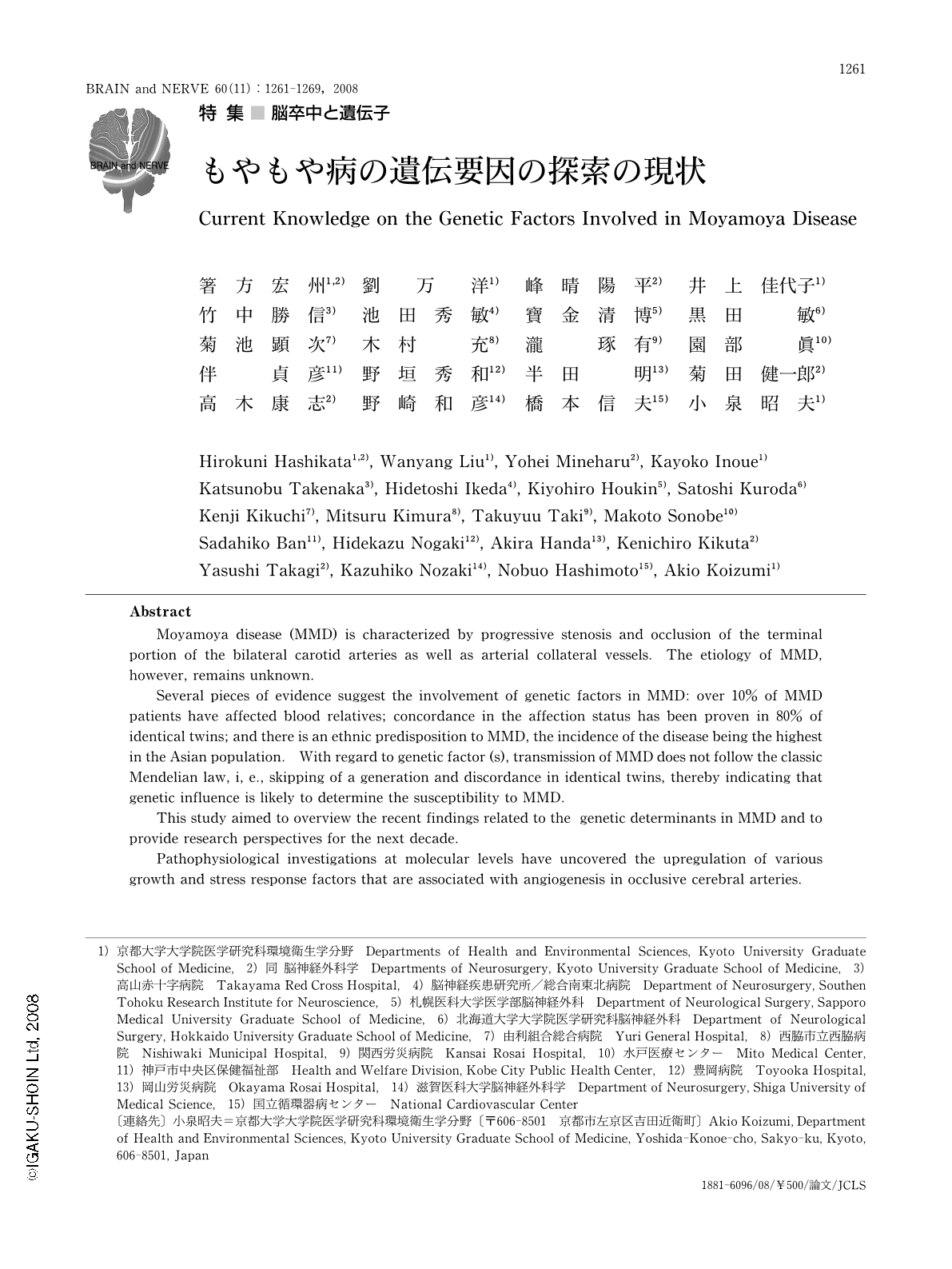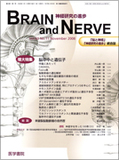Japanese
English
- 有料閲覧
- Abstract 文献概要
- 1ページ目 Look Inside
- 参考文献 Reference
はじめに
もやもや病は,両側の内頸動脈終末部の狭窄もしくは閉塞および,いわゆる「もやもや血管」と呼ばれる閉塞部近傍の異常血管網の形成を認める,慢性進行性の疾患である1,2)。
1997年の報告によれば,罹患率0.35人/10万人年,有病率3.16人/10万人といわれていたが3),2007年Babaらは北海道で悉皆疫学調査を行い,罹患率0.94人/10万人年,有病率10.5人/10万人と報告している4)。また2008年Kuriyamaらは,罹患率は0.54人/10万人年,有病率10.5人/10万人と報告している5)。このほかIkedaらの報告6)など,もやもや病の罹患率および有病率は,核磁気共鳴装置の普及により増加している7,8)。
家族内で発症のみられる,いわゆる家族性もやもや病の割合は10%以上であり,東アジア人に多くの患者が認められていること9),一卵性双生児がともに発症する確率が80%と高いこと10)など,遺伝背景が強いと示唆される11,12)。しかし,同時に浸透率が低く,一卵性双生児でも完全に罹患状態は一致しないことから,環境要因の関与も無視できない。本報告では,2000年以前の総説13,14)以降を中心に,2008年の段階における遺伝子研究の経過および現状を,筆者らの検討も含め報告する。
Abstract
Moyamoya disease (MMD) is characterized by progressive stenosis and occlusion of the terminal portion of the bilateral carotid arteries as well as arterial collateral vessels. The etiology of MMD,however,remains unknown.
Several pieces of evidence suggest the involvement of genetic factors in MMD: over 10% of MMD patients have affected blood relatives; concordance in the affection status has been proven in 80% of identical twins; and there is an ethnic predisposition to MMD,the incidence of the disease being the highest in the Asian population. With regard to genetic factor (s),transmission of MMD does not follow the classic Mendelian law,i,e.,skipping of a generation and discordance in identical twins,thereby indicating that genetic influence is likely to determine the susceptibility to MMD.
This study aimed to overview the recent findings related to the genetic determinants in MMD and to provide research perspectives for the next decade.
Pathophysiological investigations at molecular levels have uncovered the upregulation of various growth and stress response factors that are associated with angiogenesis in occlusive cerebral arteries.
Genetic studies have been conducted in the past 30 years. In the first phase,the association of MMD with HLA was investigated extensively,but the opinions remained equivocal. In the second phase,linkage analysis was performed,which demonstrated multiple loci―3p24.2―26,6q,8q23,12p12,and 17q25. None of these studies were replicated. A large genome-wide linkage analysis using 3 generation families that has been performed in 2008 has resolved the enigma of MMD and revealed a single locus on17q25. This locus is expected to provide a clue to the genetic basis for MMD,paving a way to comprehensive understanding of molecular consequences in MMD.

Copyright © 2008, Igaku-Shoin Ltd. All rights reserved.


